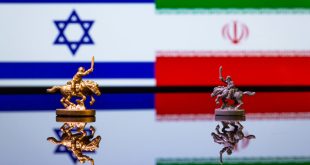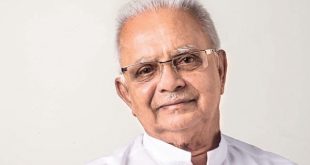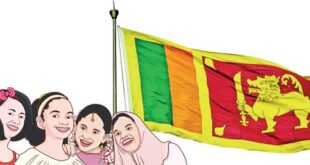By removing General Stanley McChrystal, the commander of the US and NATO forces in Afghanistan, President Barack Obama may have tried to show that he is not a softie.
The sacking of the general followed his inflammatory remarks to the Rolling Stone magazine. In the article headlined 'Runaway General', McChrystal and his aides ridiculed Vice President Joe Biden, called Obama's national security advisors 'clowns' and questioned the President's ability to act independently and decisively.
On Wednesday morning, Obama summoned him to the White House, but did not meet him. Instead, the President announced he was accepting McChrystal's resignation and replacing him with General David Petraeus, the former US commander in Iraq and McChrystal's superior.
Addressing a White House news conference Obama said: "War is bigger than any one man or woman, whether a private, a general or a president."
These tough words were directed as much at McChrystal as they were at the President's critics.
President Obama, under fire for being too nice to British Petroleum, the company that is responsible for the Gulf of Mexico oil disaster, grabbed the McChrystal affair to send a message to the American people that their commander-in-chief could get tough if the situation warranted such a stance.
However, the toughness with which he handled the McChrystal affair is unlikely to shield him from criticism arising out of the BP oil disaster, which some analysts describe as one of the biggest environmental crimes in the planet's history. His actions against BP so far have been mediocre. They are wrapped in too much civility. Shamus Cooke, a trade union activist, in a recent article headlined "Is Obama BP's poodle?', wrote that Obama doesn't challenge BP because he's on its payroll. To back his claim, he cited a May 5, 2010 Reuter report which said: "During his time in the Senate and while running for president, Obama received a total of $77,051 from the oil giant and is the top recipient of BP PAC (Public Affairs Committee) and individual money over the past 20 years, according to financial disclosure records."
 (1).jpg)
With the manner in which the US administration is handling the oil disaster threatening Obama's re-election prospects in 2012, he is under pressure to protect his presidency from being slammed as lacking the resolve or courage to act decisively in times of crisis. Similar criticism caused President Jimmy Carter's election defeat in 1980.
Apart from Obama's political survival, the McChrystal affair also tries to cover up the sham in Afghanistan where the US military has been struggling for nine years to defeat the few thousand strong Taliban and al-Qaeda fighters.
The administration's Afghan policy lacked clear direction or vision, largely due to differences between Obama administration officials and McChrystal, the highly decorated officer who is known for his military feats, the most spoken about among them being the killing of Abu Musab al-Zarqawi, the al-Qaeda leader in Iraq. In October last year, McChrystal embarrassed Obama by publicly questioning the administration's reluctance to commit more US troops to Afghanistan. Although, advisors urged Obama to fire McChrystal then, he did not do so. He met McChrystal aboard Air Force One, the president's official aircraft, during a visit to Copenhagen, agreed to send more troops and sorted out the dispute without acting like President Harry Truman.
Unlike Obama, Truman in 1951 removed General Douglas Macarthur during the height of the Korean War. This happened when the highly-decorated World War II hero disregarded the administration's policy of not extending the Korean War to China and sent an ultimatum to Beijing without consulting the President. Truman saw Macarthur's action not only as a violation of the US constitutional principle that made the military subservient to the civilian leadership but also an attempt to usurp the President's authority to make foreign policy. He was replaced by General Mathew Ridgway.
In December last year, Obama made a significant speech outlining his administration's Afghan policy. The speech came after he held ten crisis-meetings with top officials. Responding to McChrsytal's request, Obama agreed to send 30,000 more troops to Afghanistan but gave him an 18-month deadline to finish the job and bring the troops home.
Since the deadline was set, the US troops have intensified their military operations, killing more civilians than enemy combatants in Afghanistan and neighbouring Pakistan. Wikileaks, the whistleblowers' website, said this week that it would release video footage showing how civilians were killed in US military operations in Afghanistan
.jpg)
McChrystal's troops launched their biggest military operation in nine years in Afghanistan's Helmand province which was then becoming a graveyard for occupation troops, especially for the British. The operation was hailed as a major success as it drove the Taliban forces out of the province. McChrystal then planned a similar operation in Kandahar, the Taliban's stronghold. But this operation was put off several times in view of a series of setbacks.
This month alone, some 76 US and NATO troops have died, making June the deadliest month for occupation forces this year. Meanwhile, the Taliban have returned to Helmand, the province from which not so long ago McChrystal drove them away in a much-publicised military operation. The Taliban also come to Kabul whenever they want. Weeks ago, they fired rockets at a venue where Afghan President Hamid Karzai was holding an elders' jirga or conference.
If these setbacks were not enough, a congressional report this Monday revealed that a US supply chain paid millions of dollars to warlords to ensure the safety of their trucks. But the warlords paid part of the money to the Taliban and bought their assurance that they would not attack the supply trucks. The report said the Pentagon was thus indirectly financing the Taliban to the tune of $2 million a week.
It is into this mess, Obama is sending Gen. David Petraeus. The so-called embedded US media claim that his policy of surge has succeeded in bringing the insurgency in Iraq to a controllable level. But the ground reality shows Iraq is not yet safe. Every month, at least 300 people die in clashes or explosions. Even yesterday 12 people died in three suicide blasts.
With Iraq still a mess, Petraeus is not naïve to adopt for Afghanistan the same strategy that he adopted in Iraq. Afghanistan is different. Its terrain is different. Its people are different. With one third of Obama's 18-month deadline set in December last year passed, the United States' Afghan policy appears to be in disarray. The criticism McChrystal and his men levelled at the Obama administration in the Rolling Stone magazine shows that there were two versions of the official Afghan policy — one interpreted by the White House and the other by McChrystal's military at ground level. With McChrystal's departure, the administration is now free to implement its version largely interpreted by Vice President Biden, who has been an opponent of the surge policy preferred by McChrystal.
The Biden camp is reported to have called for more air strikes, accelerated training of Afghan forces and the use of US special forces troops to strike against insurgents across the border in Pakistan. This is again a recipe for more civilian deaths and suffering in Afghanistan and Pakistan.
 Sri lanka Muslims Web Portal Diversity and Inclusiveness
Sri lanka Muslims Web Portal Diversity and Inclusiveness



